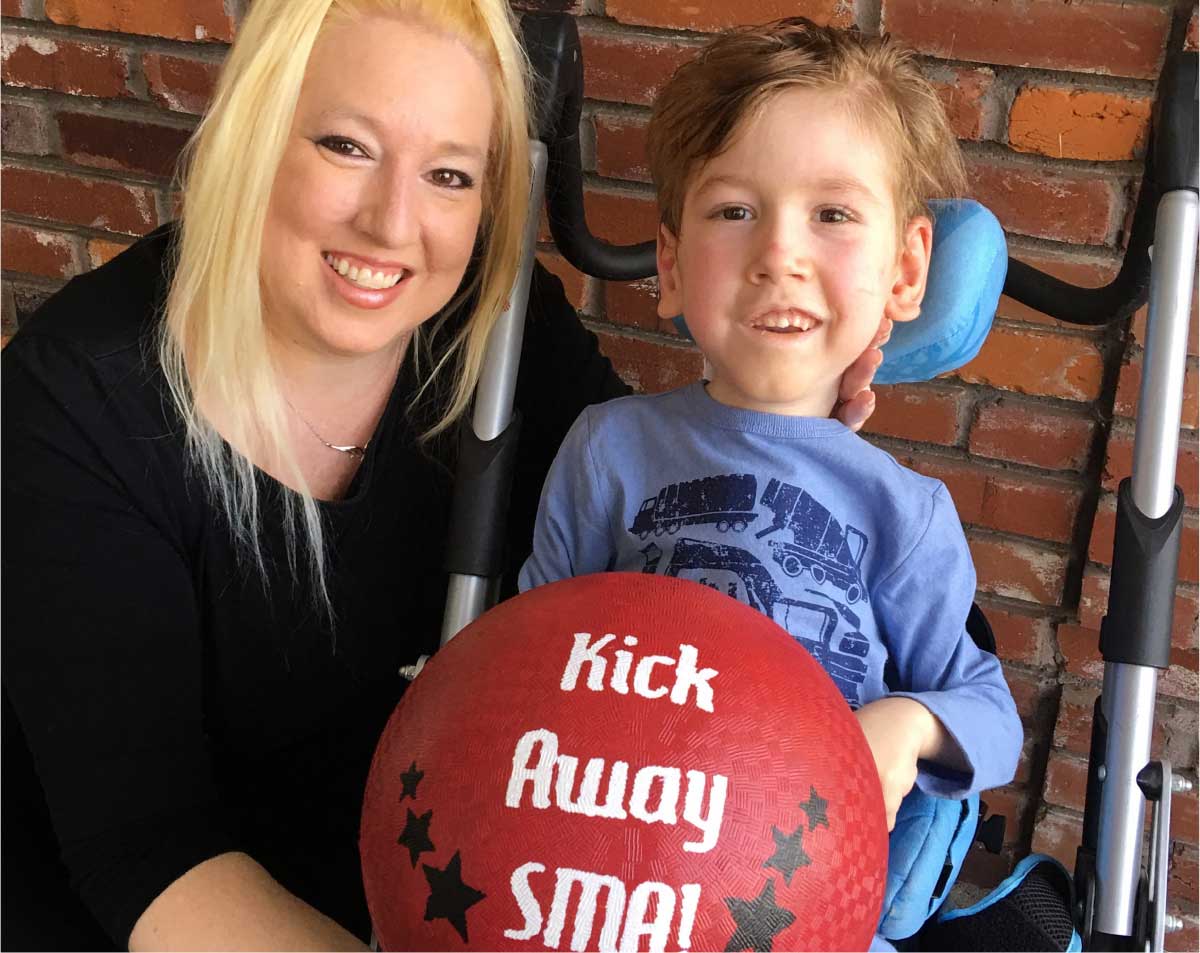Khrystal
Advocacy evolved: becoming
your child's best advocate

I’m Khrystal K. Davis, mom of five, including Hunter, who is eight years old with spinal muscular atrophy (SMA) Type 1. I participate in SMA My Way because I believe it’s important to be an empowered advocate as an SMA patient or parent.
“My advocacy for Hunter started at his birth.”
Hunter was delivered via a C-section at 36 weeks. A medical team of 12 filled the operating room. All went well, and Hunter and I went to the recovery room with a nurse, my husband and my mom, who is also a nurse.
Hunter’s health rapidly deteriorated in the recovery room. He began to grunt each time he exhaled. Hunter was my fourth baby, so I knew this wasn’t normal. I asked the nurse to observe, but she didn’t seem concerned. Still, I knew something was wrong. I asked my mom, and she tried to assure me, “I’m sure everything will be okay.” The look on her face was far less reassuring than the words she spoke, and she left the room.
My mom returned, and a medical team from the NICU rushed into the room behind her. They quickly whisked Hunter away to the NICU. His condition continued to worsen, and he required intubation for respiratory failure.
I had to learn to advocate for Hunter from the beginning, but the type of advocacy evolved following his SMA diagnosis at eight weeks of age. I focused my efforts on getting Hunter an appointment with an SMA pulmonologist, an expert and asset in the SMA community, and medical equipment to help maintain his respiratory health. The SMA pulmonologist changed everything for Hunter—we now had a team advocating for him. I learned how to navigate as the captain of that team.
His specialist referred Hunter to speech, physical and occupational therapists, and they too became part of Hunter’s advocacy team. He enjoyed and flourished in his therapy sessions. Together, we secured braces, positioning seats and wheelchairs. Unfortunately, access to what Hunter needed wasn’t guaranteed, and we frequently received insurance denials. The online SMA community was instrumental in helping us overcome the denials. Other parents provided examples of what they’d done, and I modified those documents to address Hunter and his needs. I also began to anticipate potential questions and concerns and started addressing them proactively, rather than reactively. It was great, because I didn’t have to reinvent the wheel each time to help Hunter get what he needed.
I never anticipated the extent to which I would need to advocate for Hunter. Others in the SMA community paved the path to advocacy for me and knew the obstacles we would face. I listened, learned and adjusted my advocacy as needed.
“Becoming Hunter’s best advocate was a collaborative effort and I’m grateful to the SMA community for helping.”
My tip: Look for people who are empathetic to help you get what you need for your child. When someone tells you no or demonstrates an unwillingness to help, move on to another individual. Instead of trying to change a person’s mind, look for the right person to help.